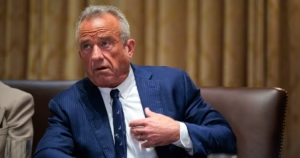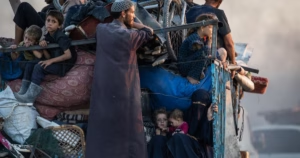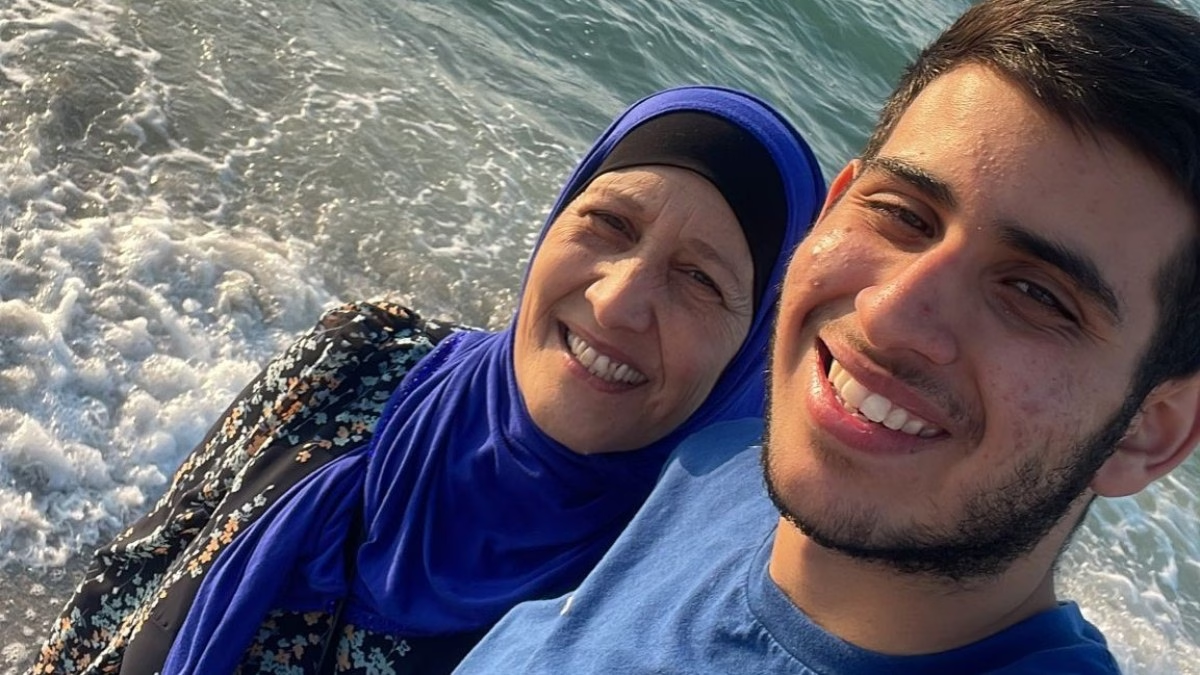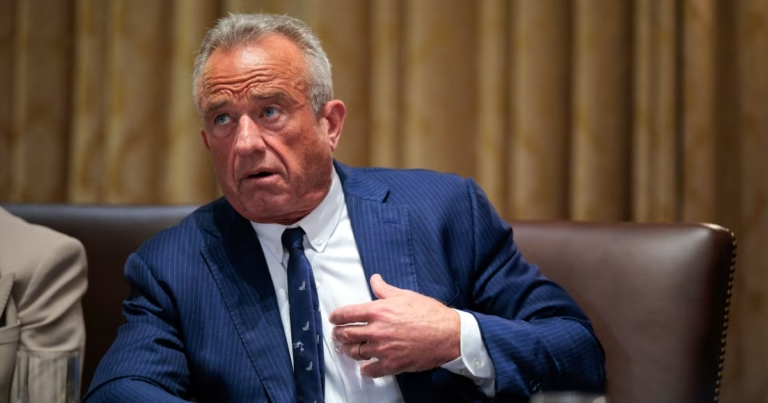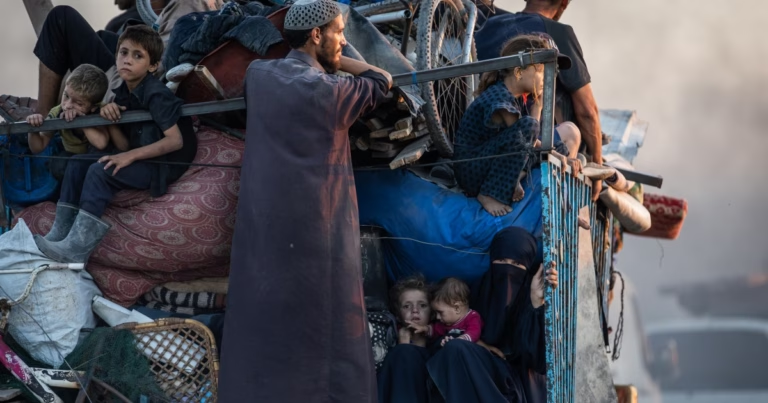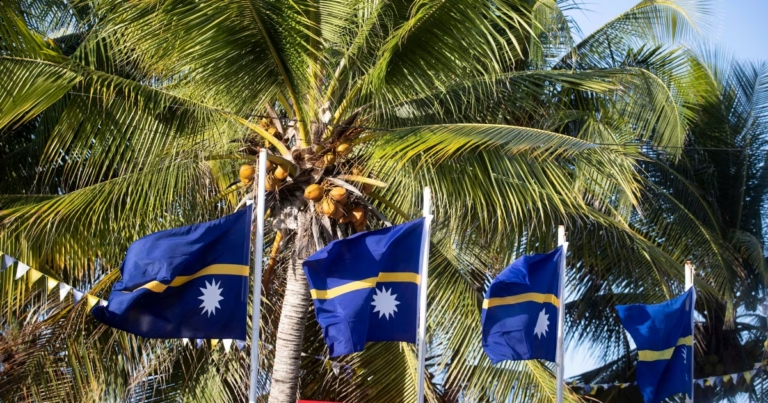Sayfollah Musalet was a beloved brother, son, and an ambitious young man who was just starting his life.
This is the message his family has been repeating since July 11th, when the 20-year-old US citizen was brutally beaten to death by Israeli settlers in the village of Sinjil in the occupied West Bank.
His family hopes this message will prevent Sayfollah, who was born in Florida, from becoming just another statistic in the growing list of Palestinian Americans whose deaths never receive justice.
Fatmah Muhammad, Sayfollah’s cousin, remembered him as a passionate individual who loved food. She recounted how Sayfollah carefully presented the delicate knafeh pastry that she sold at her ice cream shop in Tampa, which impressed her and showed his drive for excellence.
Born in Port Charlotte, Florida, Sayfollah maintained a strong connection to his ancestral roots and spent part of his teenage years in the occupied West Bank, living with his parents and siblings.
After high school, Sayfollah returned to the US and co-founded an ice cream shop in Tampa with his father and cousins, humorously named Ice Screamin. He had big plans for the business and always exceeded everyone’s expectations with the love he gave to his family.
His family remembers Sayfollah as a dedication to them and as someone who would never let his aunts pay for anything. He also enjoyed watching comedy movies, shopping for clothes, and late-night trips to the WaWa convenience store.
In the last months of his life, Sayfollah was excited about possibly finding a bride and getting married. He planned to return to the West Bank to visit his mother and siblings and search for a potential spouse.
However, his father, who switched places with Sayfollah to look after the ice cream shop, was over 10,000 kilometers away when the attack occurred. Israeli authorities claimed the attack began with rock-throwing and violence between Palestinians and Israeli civilians. Sayfollah’s family and witnesses disputed this and said he was trying to protect his family’s land when he was brutally beaten by a “mob of settlers.”
Palestinians in the occupied West Bank are not allowed to possess firearms legally, but Israeli settlers are. According to the Office of the United Nations High Commissioner for Human Rights, at least 964 Palestinians have been killed by Israeli forces and settlers since October 7, 2023. The killings of US citizens in the region are also a concern, with at least nine deaths since 2022, including journalist Shireen Abu Akleh, but none of those deaths have resulted in criminal charges.
The President of the United States has yet to directly address the death of Sayfollah, but Secretary of State Marco Rubio said that they are gathering more information. US Ambassador to Israel, Mike Huckabee, who has been a vocal supporter of Israel’s settlements in the West Bank, called for an aggressive investigation into the attack.
No independent, US-led investigation has been announced yet. Sayfollah’s family is dealing with overwhelming grief and anger, unable to accept that he died while on his own land. They see his death as part of a larger pattern of abuses and killing by Israeli forces in the West Bank and Gaza.
This is the message his family has been repeating since July 11th, when the 20-year-old US citizen was brutally beaten to death by Israeli settlers in the village of Sinjil in the occupied West Bank.
His family hopes this message will prevent Sayfollah, who was born in Florida, from becoming just another statistic in the growing list of Palestinian Americans whose deaths never receive justice.
Fatmah Muhammad, Sayfollah’s cousin, remembered him as a passionate individual who loved food. She recounted how Sayfollah carefully presented the delicate knafeh pastry that she sold at her ice cream shop in Tampa, which impressed her and showed his drive for excellence.
Born in Port Charlotte, Florida, Sayfollah maintained a strong connection to his ancestral roots and spent part of his teenage years in the occupied West Bank, living with his parents and siblings.
After high school, Sayfollah returned to the US and co-founded an ice cream shop in Tampa with his father and cousins, humorously named Ice Screamin. He had big plans for the business and always exceeded everyone’s expectations with the love he gave to his family.
His family remembers Sayfollah as a dedication to them and as someone who would never let his aunts pay for anything. He also enjoyed watching comedy movies, shopping for clothes, and late-night trips to the WaWa convenience store.
In the last months of his life, Sayfollah was excited about possibly finding a bride and getting married. He planned to return to the West Bank to visit his mother and siblings and search for a potential spouse.
However, his father, who switched places with Sayfollah to look after the ice cream shop, was over 10,000 kilometers away when the attack occurred. Israeli authorities claimed the attack began with rock-throwing and violence between Palestinians and Israeli civilians. Sayfollah’s family and witnesses disputed this and said he was trying to protect his family’s land when he was brutally beaten by a “mob of settlers.”
Palestinians in the occupied West Bank are not allowed to possess firearms legally, but Israeli settlers are. According to the Office of the United Nations High Commissioner for Human Rights, at least 964 Palestinians have been killed by Israeli forces and settlers since October 7, 2023. The killings of US citizens in the region are also a concern, with at least nine deaths since 2022, including journalist Shireen Abu Akleh, but none of those deaths have resulted in criminal charges.
The President of the United States has yet to directly address the death of Sayfollah, but Secretary of State Marco Rubio said that they are gathering more information. US Ambassador to Israel, Mike Huckabee, who has been a vocal supporter of Israel’s settlements in the West Bank, called for an aggressive investigation into the attack.
No independent, US-led investigation has been announced yet. Sayfollah’s family is dealing with overwhelming grief and anger, unable to accept that he died while on his own land. They see his death as part of a larger pattern of abuses and killing by Israeli forces in the West Bank and Gaza.
